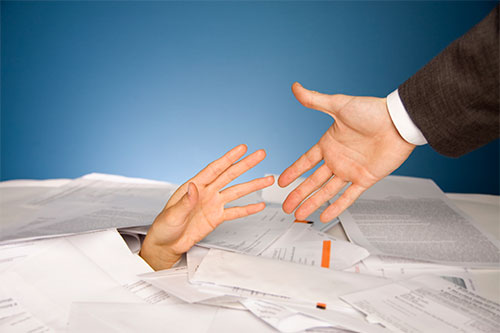How Much Tax Does a Small Business Pay?
If you reached this place on a search for “how much tax does a small business pay,” the answer is that it depends. Sure, it depends on the type of business, how much income the business generates and the expenses that it takes to generate that income. Simply answered, you will pay taxes based first on the type of business entity that you register with the IRS.
- Sole Proprietorship – the income from the business less allowable deductions passes through to the owner and is taxed on their personal return at their individual tax rate.
- Partnership – as with the sole proprietorship, income for taxation passes through to the owners for taxation on their individual returns. The amount that passes through to any single individual owner depends upon their percentage of ownership in the business.
- LLC, Limited Liability Company – in most cases, this type of business entity is treated as a partnership for tax purposes, but with the limited liability afforded a corporate structure. The business income is still taxed only once on the individual tax returns of the partners or members of the company.
- Corporation – a full corporation is taxed twice. First, there is a corporate tax rate levied on the profits of the business. Then when the stockholders receive their dividends or profit shares as distributions, they pay taxes on that money at their individual rates on their personal returns.
That is a highly simplified explanation, and the profits that are taxed will be based on what is left from income after allowable deductions. There is a huge differentiator when it comes to that question of how much tax does a small business pay. That differentiator is the quality of their tax advice and planning.
How Much Tax Does a Small Business Pay with Excellent Tax Guidance?
Often small business owners penalize themselves by taking the least expensive route to selection of a tax advisory or accounting group. If you are good at operating and managing your business and working with customers, you should be successful and make a great living. The key to keeping as much as you can of that money is in recognizing and taking advantage of expert tax guidance.
Tax planning is a critical part of the process and begins with expert advice as to the business entity formation as discussed earlier. Though, as a business grows, you may be able to change the structure, it is not an easy process and will cost some money. So, getting the right planning and advice on the front end is advisable.
Tax planning also involves planning for growth, future hiring of employees or working with independent contractors, as well as tax advantageous setup of retirement plans for owners and employees. Contributions to these plans are normally deductible against income in the year of the contributions. This saves money in the current tax year, and it also allows the money contributed to grow in tax advantaged accounts for retirement.
Working with a tax team that also offers bookkeeping and tax preparation services provides and end-to-end small business tax solution. It also offers audit response and representation before the IRS if there are questions. Now that you have an answer to the “how much tax does a small business pay” question, take a look at the end-to-end expert solutions at Taxhive.com.

